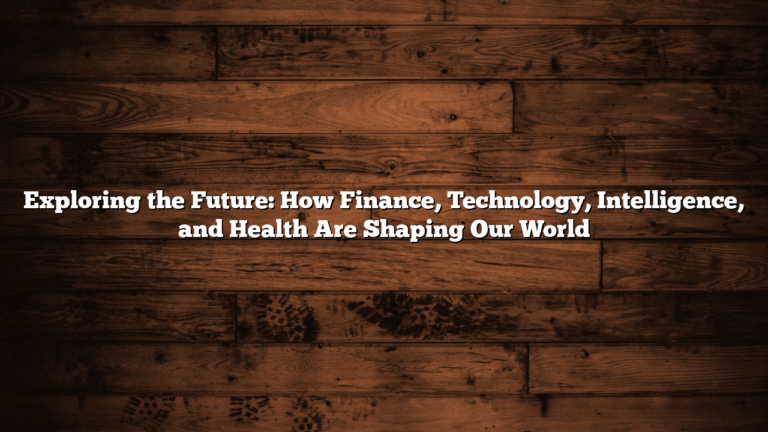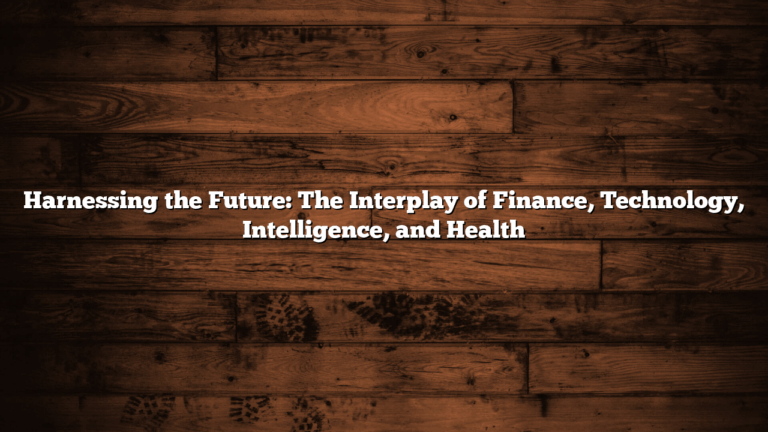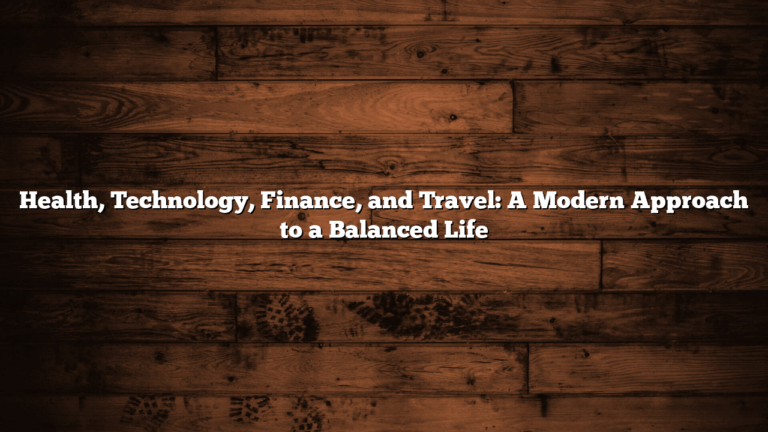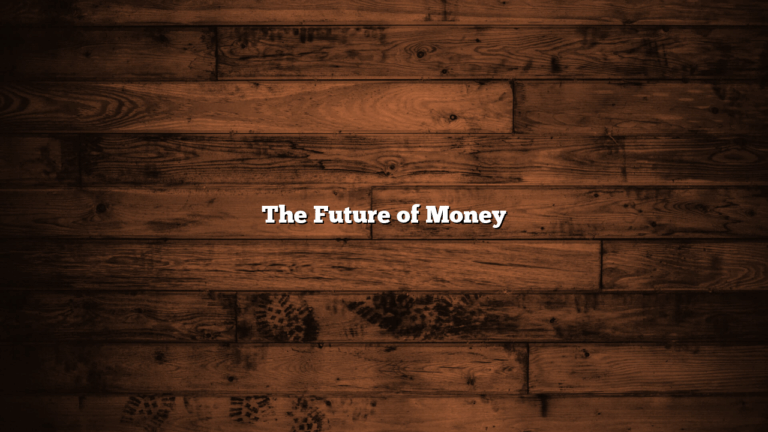
The Future of Money
As the modern age accelerates, technology is reshaping how we approach life. The intersection of finance, tech, cognitive science, and wellness is unleashing powerful trends across the globe.
Finance and Technology: A Digital Revolution
The financial sector is experiencing a digital revolution. Thanks to fintech, individuals and businesses now can leverage tools that streamline investing, budgeting, and saving.
Consider the rise of apps like Robinhood, Acorns, or Revolut have empowered users to trade stocks from their smartphones. This widespread access of financial tools has disrupted traditional banking and made it easier to grow their financial portfolio.
Additionally, with the advent of decentralized finance (DeFi), the financial world is seeing a paradigm shift. Cryptocurrencies like Bitcoin are becoming mainstream, and central banks are exploring CBDCs to adapt to the digital age.
Artificial Intelligence and Financial Intelligence
Artificial intelligence goes beyond automation; it’s about data-driven insights and future predictions. In the world of finance, algorithms can analyze market trends at speeds and accuracies that humans simply cannot match.
Robo-advisors now provide customized portfolio strategies to users based on real-time data and behavior. These tools can assist in loan underwriting, offering fairer and faster financial services.
Smart Health: Technology Meets Wellness
In the medical field, technology is saving lives. Wearables like Fitbit can monitor heart rate, detect arrhythmias, and track sleep. These devices use AI to predict potential health issues before they become emergencies.
Remote healthcare has also skyrocketed, especially in the last few years. Now, mahajitu can get prescriptions from the comfort of their homes, which lowers costs and minimizes travel.
Additionally, artificial intelligence in diagnostics—such as reading X-rays or MRIs—is often more accurate than human doctors. Tools like IBM’s Watson Health or Google’s DeepMind are enhancing disease detection and helping physicians treat patients more effectively.
Intelligence: Human and Machine in Harmony
The definition of intelligence is expanding, thanks to our interaction with machines. We now have AI systems that can beat chess champions. But the goal isn’t to replace humans—it’s to support our natural intelligence.
Across industries, AI is being used to customize learning experiences. Apps like Duolingo, Khan Academy, or Coursera are helping people boost productivity and critical thinking at their own pace.
Brain-computer interfaces are also on the rise. Companies like Neuralink are exploring ways to unlock new levels of consciousness. The implications are profound—not just for productivity, but also for mental health and wellbeing.
Where It All Intersects: Integrated Innovation
What’s most exciting is how these domains synergize. A person managing diabetes might use an AI app connected to their fintech insurance provider, receiving discounts based on real-time health data. Similarly, someone improving their mental health might use a brain-training game that adapts to their progress and even integrates with their financial goals.
Such convergence is leading to a future where our mind, body, and bank account are optimized through smart systems.
Challenges and Ethical Concerns
Of course, with such accelerated progress, come concerns. Privacy, data security, algorithmic bias, and over-reliance on machines are all issues that must be carefully managed. Financial systems run by AI could make harmful decisions, and medical diagnostics powered by algorithms must be reviewed and validated.
We must also consider digital inequality. Not everyone has the means to these innovations, which could widen the gap between the rich and poor if not handled responsibly.
Conclusion: Shaping a Smart, Healthy, and Wealthy Tomorrow
In conclusion, the convergence of these four pillars of modern life is building a smarter future. From smart health monitoring to financial automation, we’re entering an age where choices are empowered by data.
The question now isn’t whether these fields will intersect—it’s how we’ll use them responsibly. The next era is unfolding, and it’s integrated, empowered, and evolving.



